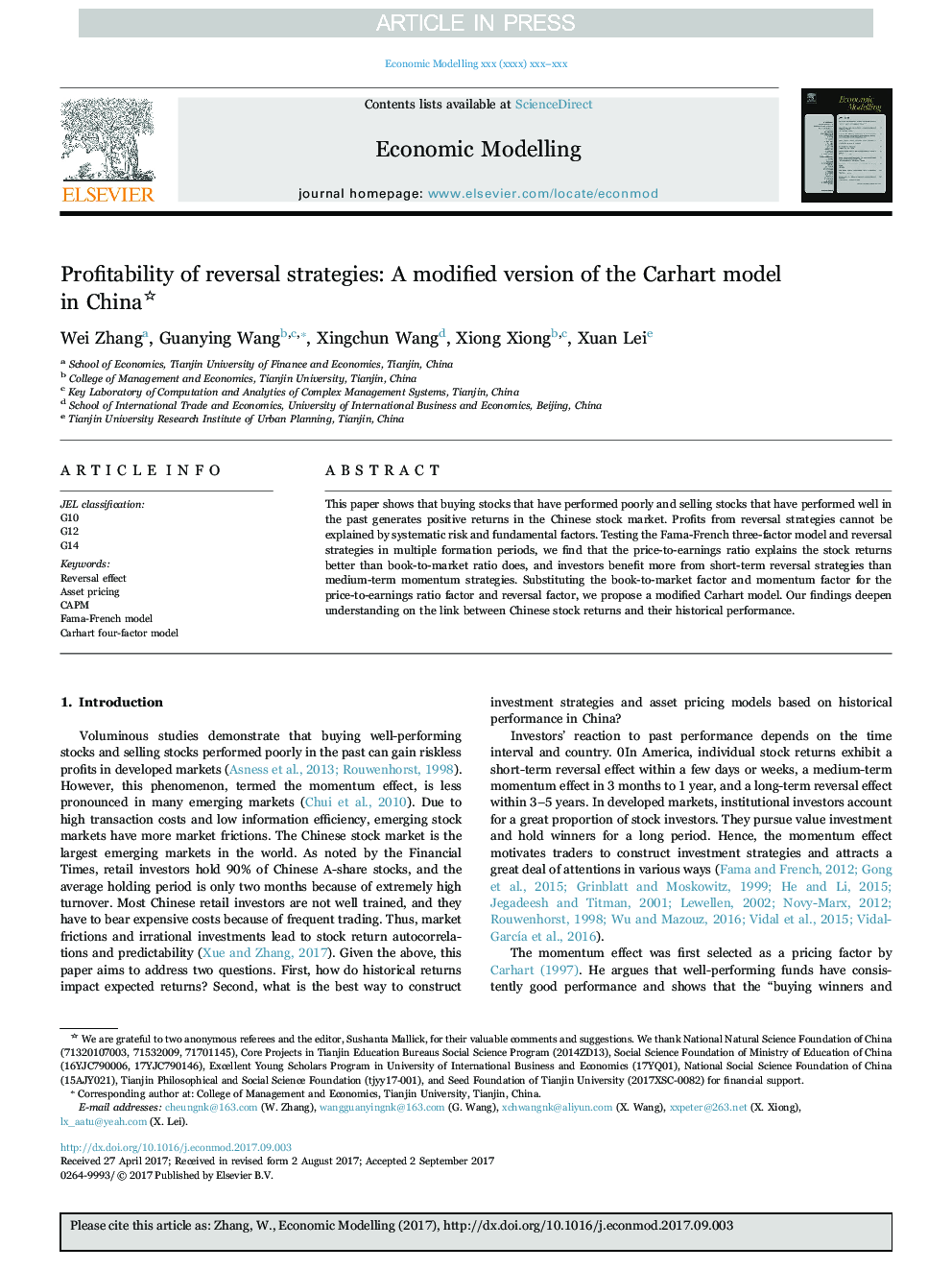| Article ID | Journal | Published Year | Pages | File Type |
|---|---|---|---|---|
| 7347402 | Economic Modelling | 2018 | 12 Pages |
Abstract
This paper shows that buying stocks that have performed poorly and selling stocks that have performed well in the past generates positive returns in the Chinese stock market. Profits from reversal strategies cannot be explained by systematic risk and fundamental factors. Testing the Fama-French three-factor model and reversal strategies in multiple formation periods, we find that the price-to-earnings ratio explains the stock returns better than book-to-market ratio does, and investors benefit more from short-term reversal strategies than medium-term momentum strategies. Substituting the book-to-market factor and momentum factor for the price-to-earnings ratio factor and reversal factor, we propose a modified Carhart model. Our findings deepen understanding on the link between Chinese stock returns and their historical performance.
Related Topics
Social Sciences and Humanities
Economics, Econometrics and Finance
Economics and Econometrics
Authors
Wei Zhang, Guanying Wang, Xingchun Wang, Xiong Xiong, Xuan Lei,
